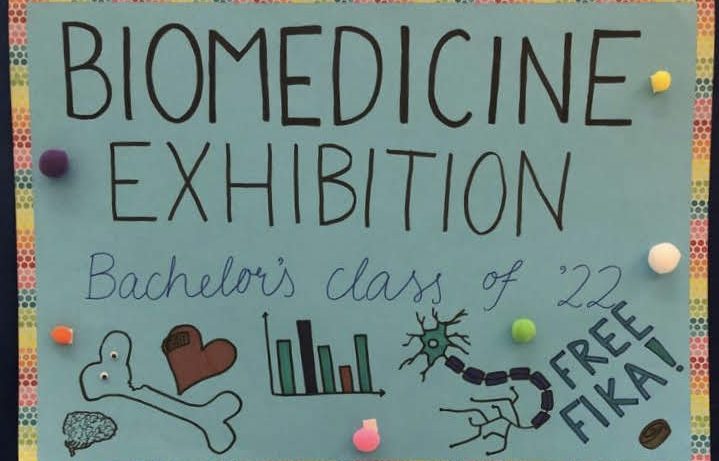
A biomedicine programme summary
Thinking about applying to the Bachelor’s Programme in Biomedicine but not sure what it entails? Or wondering how it’s different from biochemistry, cell biology, medicine, and so on? No idea how to explain it to your friends and family? You’re in the right place.
Go hunting, and you can find the programme webpage, the programme syllabus, links to syllabi for each individual courses. What you cannot find though, is a simple, one-page tells all explanations of what you actually study in the programme and its constituent courses. That’s what I want to give you here.
What do you do in the programme?
Generally speaking, you will do the following in every course of the programme:
- listen to lectures from researchers and professors working in the field
- lab work and writing reports
- finding and reading scientific articles
- problem solving activities
- lots of group work
- Designing experiments and projects
Important notes about the courses
The courses run one after another, never in parallel. They range from being worth 4 credits to 15 credits, so you can check the syllabus for that.
Semester 1: the foundations
- Organic chemistry: the structures, mechanisms, and interactions of molecules that contain carbon.
- Cell-, stem cell, and developmental biology: cell function, replication, growth, interactions between cells, and cell specialization. How stem cells work, and how the embryo develops.
Semester 2: the foundations
- Biochemistry: pathways in the body governing glucose processing, energy production, fat metabolism, alcohol metabolism, etc. How these pathways are altered in starvation, nutrient excess, disease, etc.
- Genetics, genomics, and functional genomics: analyse DNA, gene expression and gene function. Clinical use of genetics and what it can tell us.
- Chemical biology: molecular structures DNA, RNA, protein, etc. The phases and aims of drug discovery.
Semester 3: in health & disease
- Biostatistics: how to handle and interpret data in R (a commonly used programming language in science). Basic statistics, coding skills, graphing plots. We also have biostatistics incorporated in other courses like oncology, where we conduct analyses on a population, survival rates, etc.
- Tissue biology: what different parts of the body normally look like under a microscope and how to identify structures. How you can prepare and stain samples depending on what you want to visualize.
- Immunology and microbiology: how the human body fights against various viruses, germs, parasites, and pathogens and how they fight back.
- Neuroscience: The various parts of the nervous system and how they work together to help you sense, move, react, and more. The molecular mechanisms of psychiatric conditions and how they are treated.
Semester 4: in health and disease
- Physiology: Your heart & circulation, lungs & respiration, kidneys & fluid & electrolyte balance, your digestion, hormones, and reproduction. The nervous system you don’t control, muscles, regulation of body temperature and exercise physiology.
- Pathology: Sister course to tissue biology, where we identify the hallmarks of diseased tissues.
- Pharmacology & Toxicology: The drug discovery process, important classes of drugs and medications, toxicological principles, how to assess safety and risk, and common mechanisms of toxicity.
- The Life Science Industry: An introduction to careers in the life science industry and to business methodologies and creative ways of solving problems.
Semester 5: molecular medicine
- Oncology : how and why cells become cancerous, and how cancer spreads around the body. Focuses on some of the most common cancers worldwide as well the fundamentals for treating cancer.
- Cardiometabolic & infectious disease: the basis for cardiac, metabolic, and infectious disease as well as how they are connected within individuals and globally.
Semester 6: thesis
The degree project: a research project that you carry out under supervision and work towards testing a hypothesis. You can essentially choose any field of biomedicine you like. You can find my blog about the degree project course for more information
Finally
I hope this has been useful, and helps give you a better idea of what the programme actually involves beyond the course names. If you want more details, you should check out the course pages or my course review blogs!
If you have any questions or comments, you can always reach out to the current digital ambassadors!
❤️ Inika
Inika Prasad — Biomedicine BSc
Hello, Inika here. I’m a third-year Biomedicine bachelor’s student at KI. I'm from India and a little bit from Sweden. As a Digital Ambassador Blogger, I'll be writing about my programme, things happening in and around KI, and giving insights into university life.

0 comments